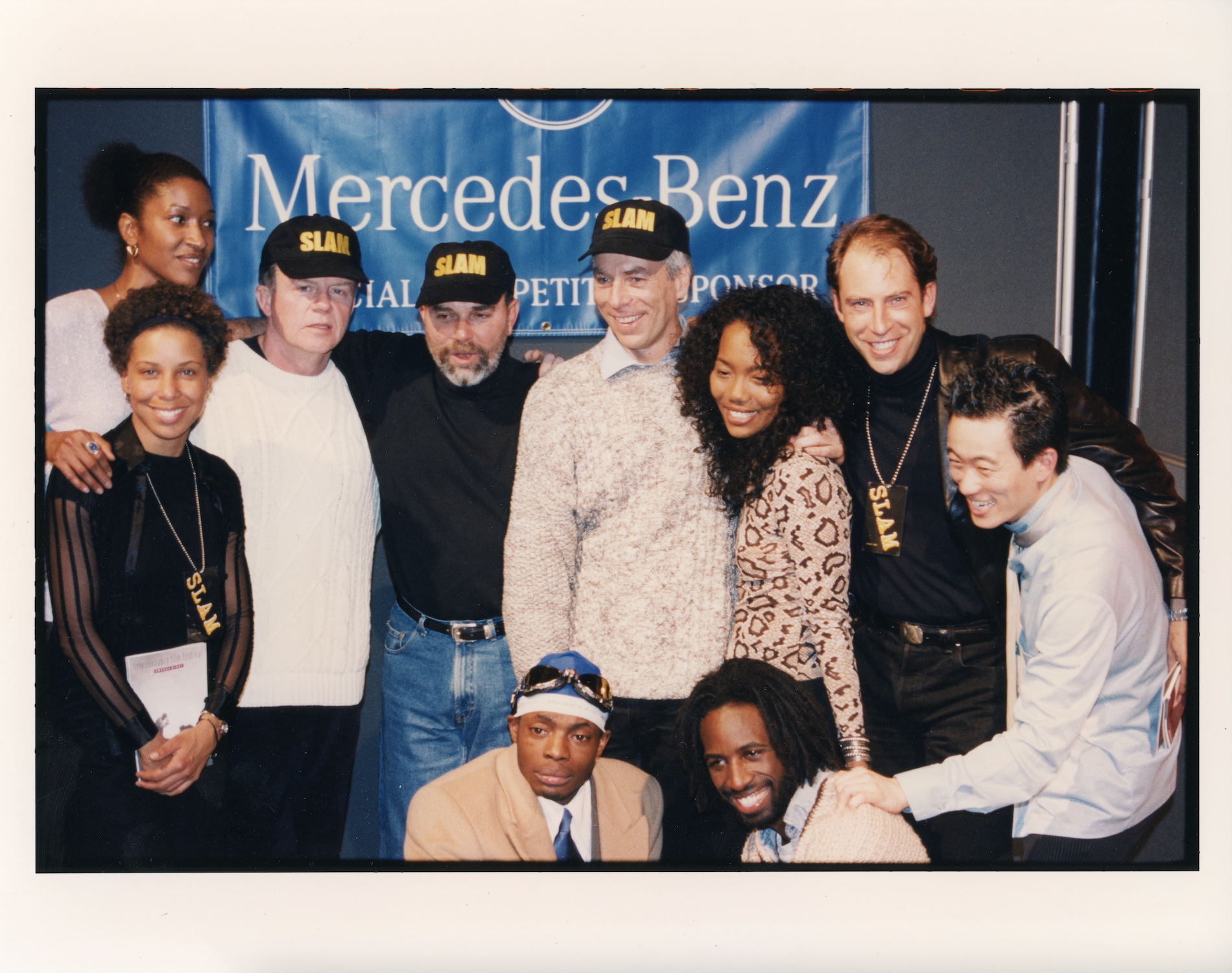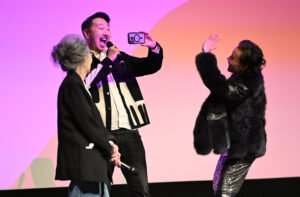One of the most exciting things about starting each year with the Sundance Film Festival is having a front-row seat for the bright future of independent filmmaking. Captivating stories, soon-to-be iconic shots, and timely cinematic conversations are all cornerstones of the 2023 Festival slate — and those are all birthed from the hearts and souls of these filmmakers. That means that this year we have the privilege of being introduced (or reintroduced for returning filmmakers) to the artists behind 111 features, 64 shorts, and four indie episodic projects.
And while we learn a lot from the art that these storytellers share with us, there’s always more we can learn about these filmmakers as people. This year we decided to get to the bottom of those artistic wells with our Backstory questionnaire!
25 years ago, Marc Levin’s SLAM premiered at the 1998 Sundance Film Festival. The striking film about the criminal justice system and the power of poetry introduced the world to artists like Saul Williams and won the Sundance Grand Jury Prize. Now, Levin is back with a new digital restoration of his award-winning film — made in collaboration between Sundance Institute, the Academy Film Archive, and the UCLA Film & Television Archive — and a new audience he’s excited to share the film with: “Everyone, especially young people.”
The story of a Black artist (Williams) navigating prison, systemic racism, and poetry after being arrested on a petty drug possession charge still resonates today and Levin isn’t surprised: “Poets are the truth tellers in a world of hurt, and our world is hurting now.”
Below, learn more behind-the-scenes moments during the creation of SLAM, why filmmaking is so important to Levin, and what the multi-Sundance Festival storyteller (Twilight LA, Heir to An Execution, Protocols of Zion, Chicagoland) would be doing if he wasn’t a director.
Tell us why and how you got into filmmaking. Why do you do it?
I’m a storyteller and growing up film became the dominant influence. Films like Dr. Strangelove [or: How I Learned to Stop Worrying and Love the Bomb], The Battle of Algiers, The Graduate, Easy Rider, The Godfather [all] shaped my view of the world. I wanted to be part of that and it still turns me on.
What was the biggest inspiration behind SLAM?
The words of the slam poets, which were hurled like weapons against the madness of the drug war and mass incarceration.
Your favorite part of making the film? Memories from the process?
Collaborating and improvising scenes and dialogue with the warden, correction officers, and detainees in the D.C. jail to keep it real.
Tell us an anecdote about casting SLAM.
When I saw Saul Williams win the Grand Slam poetry event at the Nuyorican Cafe on the Lower East Side of New York City, in the spring of 1996, I knew I had seen the future.
What was a big challenge you faced while making this film?
The challenge was how to go to jail and make a movie. We were warned that we needed security to shoot in the jail and in the hood. Ironically, we had no problems in Washington D.C., but when we came back to our home — to shoot the final scene in New York City — that’s when the guns were drawn.
Why is filmmaking important to you?
Storytelling is the way we humans pass on our culture, our values, our heroes, our history. Like music, film is a universal art form and a commercial industry, which can move people to love and, sadly, to hate. The stories we tell each other will help shape the future of our world.

If you weren’t a filmmaker, what would you be doing?
Good question. I wanted to be an athlete and a writer as a kid, [but] today I’d love to be a poet and a musician.
What is something that all filmmakers should keep in mind in order to become better cinematic storytellers?
Follow the footage — don’t be afraid to let go of your preconceived ideas to let new notions and even accidents lead you to new discoveries.
One thing people don’t know about me is _____
I worked on the Maysles classic documentary Gimme Shelter as a teenager.
What three things do you always have in your refrigerator?
Peanut butter, Heineken, Häagen-Dazs.
Early bird or night owl?
Night owl.
What’s the last book you read?
American Terrorist by Dan Herbeck and Lou Michel.
What’s your favorite film that has come from the Sundance Institute or Festival?
Hoop Dreams (doc), Living in Oblivion (narrative).







